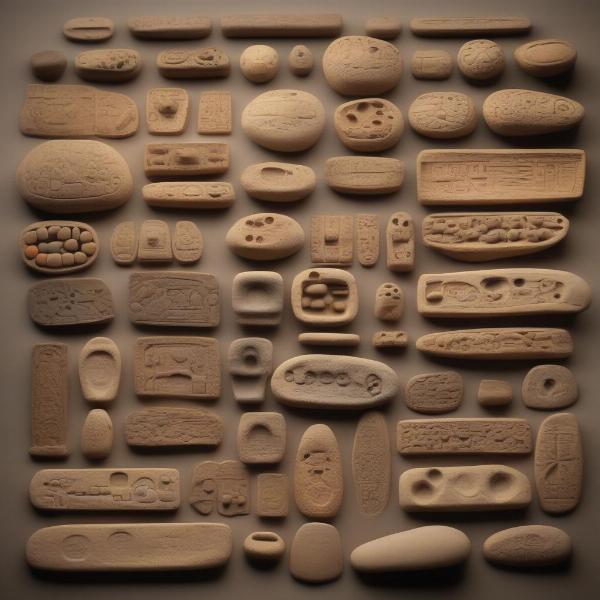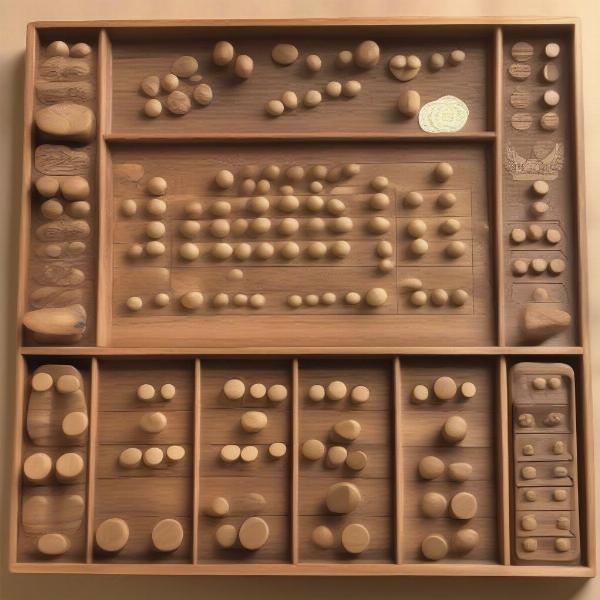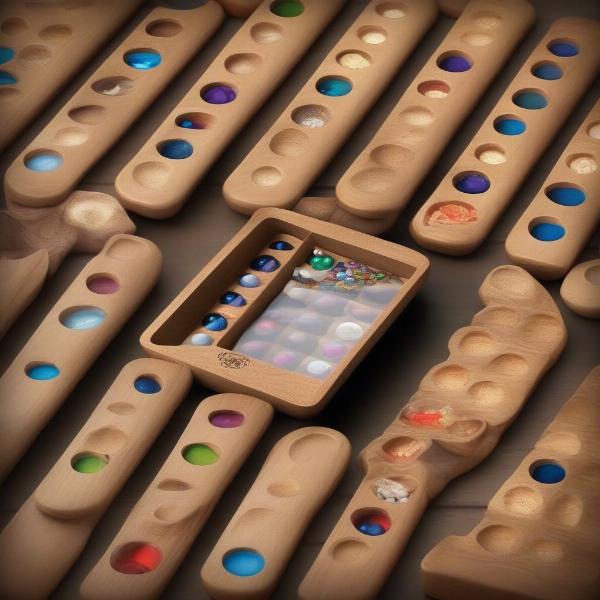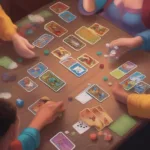Mancala’s origins stretch back centuries, making it one of the oldest board games in existence. Uncovering its exact age is a journey through archaeological discoveries and historical texts, revealing a rich and fascinating past.
Delving into Mancala’s Ancient Roots
Determining precisely how old the game Mancala is proves to be a complex task. Unlike games with documented creators and release dates, Mancala’s history is woven into the fabric of ancient civilizations. Evidence suggests its origins lie in Africa, with some of the earliest traces found in Jordan, dating back to the 6th and 7th centuries CE. However, many experts believe the game predates these findings, potentially originating thousands of years earlier.
Unveiling the Earliest Evidence
Archaeological digs have unearthed game boards resembling Mancala in various locations across Africa and the Middle East. These discoveries, often carved into stone or pottery, offer glimpses into the game’s ancient past. While pinpointing the exact date of Mancala’s inception remains challenging, these artifacts provide valuable clues to its widespread popularity in ancient societies.
The variations in board design and rules across different cultures further complicate the dating process. Mancala isn’t a single game but rather a family of games, each with its own unique characteristics. This diversity reflects the game’s evolution and adaptation across geographical regions and throughout history.
 Ancient Mancala Boards: Archaeological Discoveries
Ancient Mancala Boards: Archaeological Discoveries
Tracing Mancala Through History
From its ancient beginnings, Mancala spread across continents, carried by travelers, traders, and migrating populations. Its presence can be traced through historical accounts and cultural artifacts, demonstrating its enduring appeal. The game’s adaptability allowed it to flourish in diverse settings, from bustling marketplaces to quiet villages.
Mancala’s Cultural Significance
Mancala played a significant role in many societies, often more than just a pastime. It was used as a tool for teaching counting and strategy, a form of social interaction, and even a means of divination. Its integration into various aspects of daily life speaks to its cultural importance and the value placed on strategic thinking and social engagement.
 Mancala in Different Cultures: Historical Evolution
Mancala in Different Cultures: Historical Evolution
The Mystery of Mancala’s True Age
While we may never know the precise date of Mancala’s creation, the ongoing research and discoveries continue to shed light on its remarkable journey through time. The game’s enduring popularity testifies to its timeless appeal, capturing the imagination of players across generations and cultures.
Mancala in the Modern Era
Today, Mancala continues to be enjoyed worldwide, both in its traditional forms and in modern adaptations. Its simple rules and engaging gameplay make it accessible to players of all ages, while its strategic depth offers a rewarding challenge for experienced gamers. The game’s continued presence in the digital age speaks to its enduring appeal and adaptability.
“Mancala’s longevity is a testament to its simple yet profound gameplay. It’s a game that can be enjoyed by anyone, regardless of age or background.” – Dr. Sarah Jones, Game Historian
 Modern Mancala Variations & Digital Adaptations
Modern Mancala Variations & Digital Adaptations
Exploring Mancala’s Rich Legacy
Mancala’s story is a testament to the power of games to transcend time and cultural boundaries. Its ancient origins and enduring popularity make it a true treasure in the world of board games, offering a glimpse into the history of human ingenuity and social interaction. So, how old is Mancala? While the exact age remains a mystery, its legacy continues to inspire and captivate players worldwide.
FAQs about Mancala
-
What is the objective of Mancala? The goal is to capture more stones than your opponent by strategically moving them around the board.
-
How many variations of Mancala are there? There are hundreds of variations, each with its own specific rules and board configurations.
-
Where can I learn to play Mancala? You can find rules and tutorials online, in books, or even by asking someone who already knows how to play.
-
What are the benefits of playing Mancala? Mancala can improve strategic thinking, mathematical skills, and social interaction.
-
Is Mancala suitable for all ages? Yes, Mancala can be enjoyed by people of all ages, from young children to adults.
-
Where can I buy a Mancala board? Mancala boards are available online, in toy stores, and in some specialty game shops.
-
Can I play Mancala online? Yes, there are many websites and apps where you can play Mancala against other players or against the computer.

